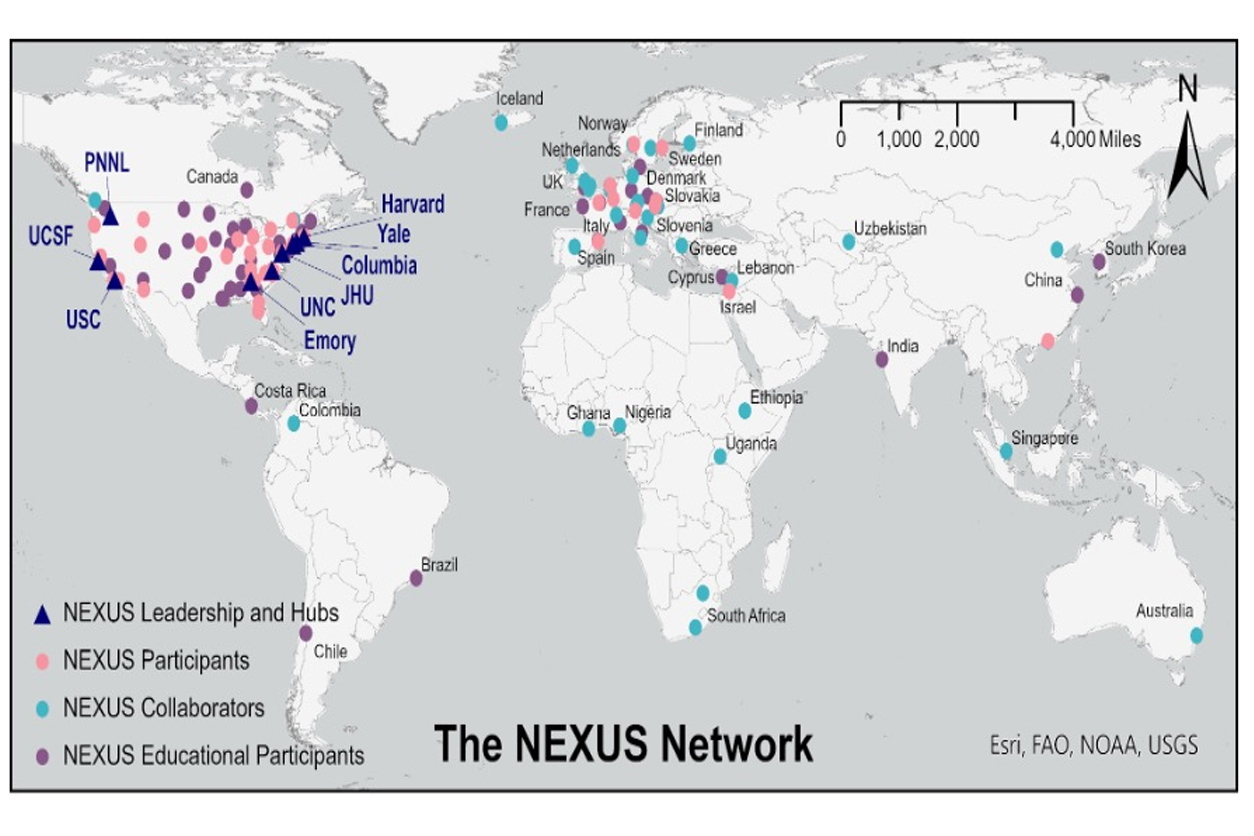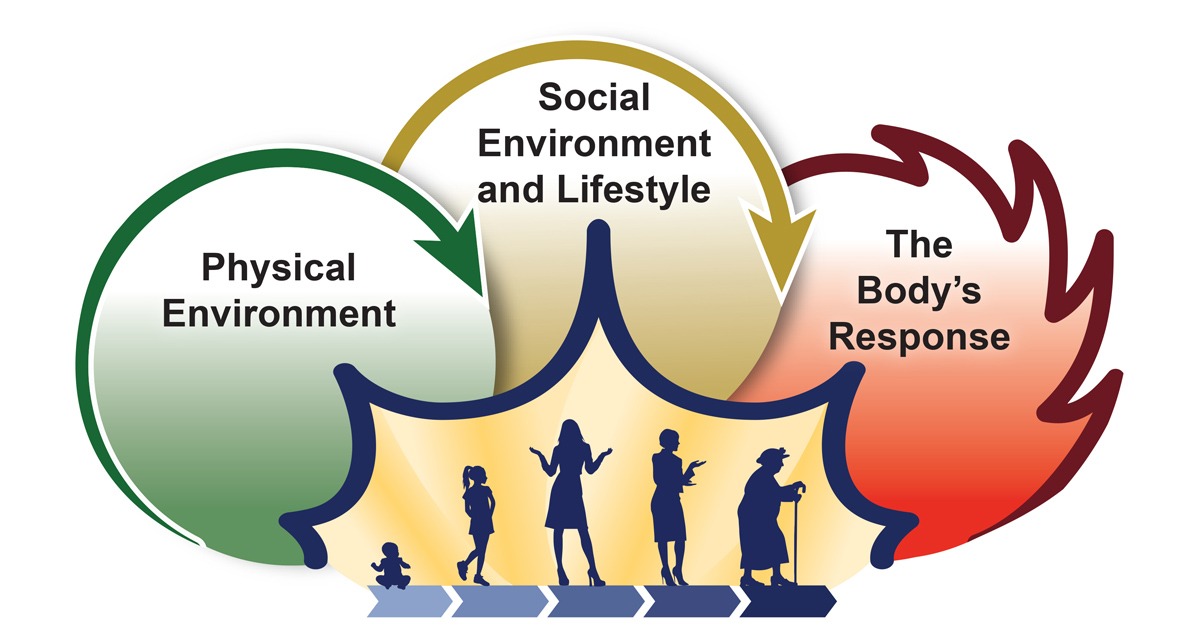The National Institutes of Health (NIH) has funded a new coordinating center to transform how environmental drivers of health and disease are studied, so the knowledge can be used to personalize prevention and treatment strategies. By promoting innovation in new tools and methods, and investigator research networks, the NIEHS-led effort aims to establish exposomics as a core part of scientific and biomedical research across the U.S.
Exposomics is the study of the exposome, which is the integrated compilation of physical, chemical, biological, and social influences and their impact on biology and health.
“The coordinating center is a critical next step to integrating comprehensive environmental exposure assessments into biomedical research,” said NIEHS Director Rick Woychik, Ph.D. “These exposomic assessments represent a much-needed complement to genomics to develop better approaches for preventing and treating a broad range of human diseases.”
A half-dozen NIH Institutes and Offices support the initiative. NIEHS, National Institute on Aging, National Institute of Neurological Disorders and Stroke, National Cancer Institute, National Institute of Arthritis and Musculoskeletal and Skin Diseases, and the Office of Research on Women’s Health have funded and will work closely with the center.
A nexus for exposomics research
NIH announced the $7.7 million center award to Columbia University, Harvard University, and the University of Southern California Sept. 9 following a rigorous application review process.
Named NEXUS, the Network for Exposomics in the U.S. will build a global community of practice for cooperation and collaboration in coordination with the International Human Exposome Network.
NEXUS will be jointly led by Gary Miller, Ph.D., Columbia University Mailman School of Public Health; Chirag Patel, Ph.D., Harvard Medical School; and Rima Habre, Sc.D., University of Southern California.

“NEXUS aims to change the way NIH-funded research is conducted by embedding cutting-edge exposomics technology into studies ranging from autoimmune diseases to brain disorders,” said Sri Nadadur, Ph.D., who leads the NIEHS Exposure, Response, and Technology Branch.
“Integrating exposomics with genomics will pave the way for precision health,” added Yuxia Cui, Ph.D., an NIEHS program officer who will work closely with center investigators to ensure its goals are achieved.
Advancing environmental health
“NEXUS is designed to provide the necessary scientific and administrative coordination to propel exposomics into the future,” said Miller, who has been at the field’s forefront since 2013.
In the past, studies of environmental exposures — from pollution and chemicals to diet and stress — were limited to one or a few exposures at a time due to a lack of scientific tools to quantitatively measure how all exposures together affected health.
In contrast, advances in genomics in the early 2000s made it possible to begin identifying specific genetic mutations causing certain diseases on a genome scale. However, it is the combination of genetic and environmental factors alongside vulnerabilities that drive most complex diseases, such as heart disease, cancer, and diabetes.
According to Miller, NEXUS seeks to identify the balance between genetic and environmental influences on health so that environmental factors are no longer overlooked.
Global coordination

The center will connect scientists from around the world with expertise ranging from chemistry, data science, and environmental health to geospatial tools, public health, and clinical care. To harness the power of these collaborations, the center is organized around the following four goals.
- Building a community of practice by engaging and connecting researchers, policymakers, and funders, while coordinating scientific vision, logistical support, and resources to accelerate innovation in exposomics.
- Developing state-of-the-art tools and best practices to standardize measurement of the exposome in both biological and environmental samples.
- Pioneering transdisciplinary education and methods to understand place-based exposures and how these social and environmental determinants influence health and well-being at both the population and personal levels.
- Building data science infrastructure to integrate informatics, artificial intelligence, and machine learning to support a large-scale exposome-wide association study (ExWAS) capable of unlocking new insights about precise environmental factors driving health and disease at the individual level.
Leading the way
NIH aims to improve the health of the nation by conducting and supporting research, including research that sheds new light on how a person’s biology may be linked to environmental exposures.
“Given the profound impacts of the environment on human health and disease, it is so important that NIEHS continue its work to build the tools and lead the science that will allow researchers across all NIH Institutes and Centers around the country to explore the importance of the exposome and the overall environment to human health,” said NIH Director Monica Bertagnolli, M.D., during a recent meeting with NIEHS advisors.
(Caroline Stetler is Editor-in-Chief of the Environmental Factor, produced monthly by the NIEHS Office of Communications and Public Liaison.)
Source link
factor.niehs.nih.gov


